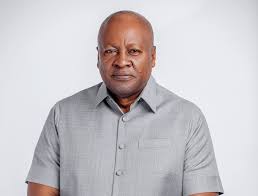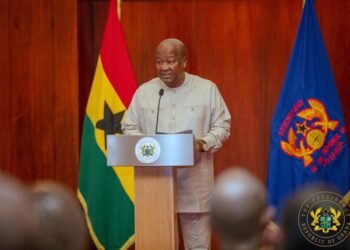In a strong and unequivocal statement, Mensah Thompson, the Executive Director of the Alliance for Social Equity and Public Accountability (ASEPA), has refuted claims that the Free Senior High School (SHS) program is responsible for Ghana’s current economic crisis.
Mensah Thompson’s comments come in response to ongoing narratives propagated by certain government officials and economists, suggesting that the education policy is a significant financial burden.
“Free SHS is not the cause of this economic mess,” Mensah Thompson declared. He emphasized that reckless borrowing, excessive spending, dishonesty, and misrepresentation of economic indicators are the true culprits behind Ghana’s financial woes.
Corruption, lack of investment, the closure of banks, political cronyism, misuse of COVID-19 funds, and the depletion of buffer funds like the stabilization and sinking funds have compounded the issues, resulting in what he described as sheer economic mismanagement and incompetence.
Mensah Thompson’s statement is a rebuttal to the persistent narrative that Free SHS, a flagship policy of the current administration, is a major drain on the country’s finances.
The recent revelation by the Minister for Finance that GHC 9.9 billion has been spent on Free SHS since its inception in 2017 was seen by Thompson as a critical moment to dispel the misconceptions.
“This should bring to an end that ridiculous narrative peddled by government propagandists and some quack economists over and over again.”
Mensah Thompson, the Executive Director of ASEPA
Mensah Thompson revealed that from 2017 to date, the government has borrowed over GHC 500 billion, received more than GHC 450 billion in tax revenue, GHC 120 billion in petroleum receipts, GHC 8 billion from mineral receipts, and over GHC 10 billion in grants and other receivables. These figures total an astounding GHC 1.4 trillion.
Mensah Thompson argued that the GHC 9.9 billion spent on Free SHS represents only about 7% of the total revenue accrued by the government over the past seven years. “This cannot pose any significant strain on the economy as some people want us to believe,” he added.
Arrears and Infrastructure Strain

Mensah Thompson also highlighted that even the GHC 9.9 billion figure includes significant arrears of over GHC 1.1 billion accumulated due to non-releases. He contended that this further undermines the argument that Free SHS is a financial burden.
“So from today, nobody should come and tell us that Ghana paid any price for Free SHS with the economy,” Thompson asserted.
Mensah Thompson acknowledged that the rushed implementation of the program has resulted in a reduction in quality and strain on existing infrastructure. The government has allocated a substantial portion of its education budget to the program without making strategic efforts to improve infrastructure and other essential facilities and materials for learning.
Mensah Thompson’s statement serves as a call to action for a more nuanced understanding of the factors Mensah contributing to Ghana’s economic challenges. By challenging the simplistic narrative linking the Free SHS program to the economic crisis, he underscores the complexity of economic management and the need for comprehensive solutions that address the root causes of the problem, including corruption, mismanagement, and inadequate investment in critical sectors.
Thompson’s remarks come at a time when Ghana is grappling with significant economic difficulties, including high debt levels, inflation, and a struggling banking sector. His critique underscores the need for a comprehensive approach to addressing these challenges, one that goes beyond blaming educational initiatives and instead tackles the root causes of fiscal instability.
Mensah Thompson’s detailed breakdown of government revenues and expenditures provides a critical perspective that challenges the oversimplified narrative linking Free SHS to Ghana’s broader economic issues.
READ ALSO: Germany Bans Islamic Group Accused Of Extremism And Iranian Links



















